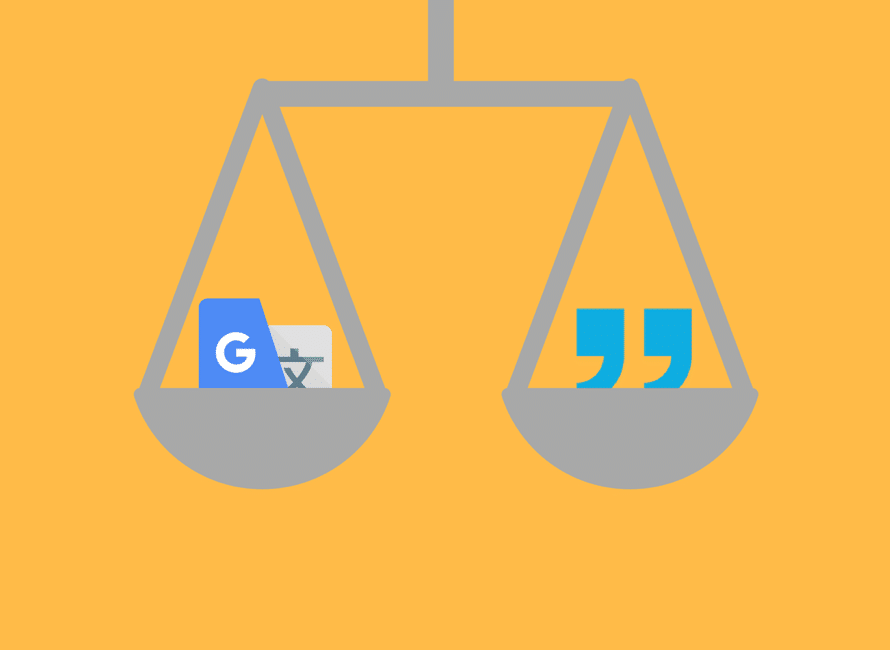I have always been very cautious when it comes to copyrights and trademarks. I have been an author all of my adult life and I have spent a lot of that time as a freelance writer and content creator as well. This has helped me to gain a great deal of respect for original work.
It is a perpetual paranoia of mine that I will somehow, inadvertently, step on someone else’s shoes and that my work will then suffer the consequences. So, before I publish any websites or any content online I make sure I complete a few simple checks to ensure I won’t face any legal issues down the line.
Check for Plagiarism
I am a writer by trade, so I write a lot of my own website content. However, sometimes it’s more economical for me to write for a client and then to hire someone else to write for my site. I have been doing this since the beginning, using sites like Upwork, and in that time I have worked with over 50 writers, around 40 of which were either incompetent or were out to scam me.
The amount of excuses, missed deadlines, plagiarized work and downright scams I have encountered has been unbelievable. So, don’t take content you pay for on face value and make sure you run it through Copyscape to check it is original.
You should also read it and look for strange word usage. These days a lot of scammers will simply steal an article and run it through spinning software. This will use synonyms to change random words, therefore maintaining meaning (at least in theory) and passing plagiarism checkers. However, the words they change are often bizarre. So, look out for them, change them back to the words they obviously should be, and then run through a plagiarism checker.
I did this a few months ago with an article for a horror site that I had received from a very suspicious freelancer. They passed Copyscape, but I then decided to edit the article to remove their awkward choice of words. Afterwards I decided to retest it on Copyscape, at which point I realized that the article had been stolen from this article on serial killers which, by a twist of fate, was actually owned by a former client of mine.
Be Careful Which Pictures you Use
There are some strange laws with regards to images and whether or not you can use these on your site. To avoid any complications, I often just use generic images from Pixabay. But I know of many sites that will just take what they want and then attribute the image to the site/creator they took it from.
This is a legal grey area and I wouldn’t recommend it. But what if you are writing about a very specific case and you need images from that case? Well, this has actually happened to me before. I was writing about a famousmedical malpractice lawsuit that was all over the news at the time. Tabloids, news sites and everyone else was publishing official images from the case (doctors, x-rays, etc.,) but I couldn’t find a guarantee that those images were copyright free.
On the one hand I didn’t want to take a risk, on the other hand I didn’t want to use generic images. So, I simply contacted the tabloid that first posted the pictures and asked if I could use them. I promised to give them credit and link back to them, and they responded with 2 hours to confirm this was okay.
It saved me a lot of time and hassle and I made sure I saved that email just incase they changed their mind at a later point and decided to take some kind of action.
Do you Own the Theme?
I work in WordPress, as many content creators do. I also work with premium themes, because they are much easier. These themes charge you an average of $50 to use them and that gives you the rights to use them on a single site. If you want to install them on another site, you need to pay another $50.
The problem is, you already have the download at that point and many webmasters don’t feel obligated to pay that additional money. They don’t believe they will ever get caught and therefore don’t deem it necessary.
In a way they are right, because unless you make a point of connecting your websites to one another then your chances of getting caught are slim. But at the same time, it’s $50. It’s not going to bankrupt you and if you are paying for good content then it’s probably the equivalent of a short article. It’s just not worth the risk and it’s also a great way to show respect to the people who make these themes.
If you spent a lot of time and money creating a quality theme that was being used by webmasters big and small, you would be pretty annoyed if a network earning tens of thousands went to great lengths to rip you off for just $50. So, consider it a donation—a way of doing the right thing and helping those them creators to continue doing what they do.
Keep Checks on Writers
If you have writers who can freely write, submit and post to your site, then you should make regular checks on the work that they submit. It’s obviously very important to hire people you trust for these roles. I personally have a very capable team that have done great work and that I trust. But if you own a website that constantly lets writers gain access (for your convenience and theirs) this isn’t easy.
In the past I have had writers who have taken liberties and used plagiarized content when they thought I was no longer monitoring the site. I have also had writers and artists who have unknowingly used copyrighted and trademarked content, getting me in to trouble. So, make sure they know the rules and make sure you check on their work.





